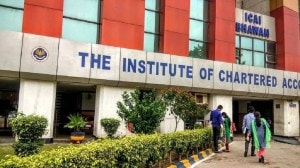By Dr AP Maheshwari
In a recently organized program to commemorate Cancer Awareness Month for Children, many interesting facts came to the fore. Globally over 4 lac children under the age of 19 years contract cancer. In India this incidence is somewhere between 50-70 thousand. Uttar Pradesh being a very large state, the number of children contracting cancer would be nearly 4% of the global fallout. While developed countries have achieved the recovery rate close to 80%, the lower and middle level countries are stuck at a meagre level of 20-30 percent. However, the aim is to hit 60% recovery rate by the end of the current decade. One of the reasons for such a disparity is the lack of required medical infrastructure for early cancer detection in remote rural areas and the concentration of critical care centers only in the cities. Hence, delay in early detection results in loss of the golden opportunity for early effective treatment. Most of the affected children don’t get treatment and succumb to their fate while several reach the right place only after the cancer has progressed to an advanced stage. Universally, therefore, the month of September has been chosen as the cancer awareness month, as awareness is the key to proactive action against this life-threatening disease.
Dr Archana, the Paediatric Oncologist of Apollo, Lucknow, who earlier worked for an extended stint at KGMU, feels that there is a need for a ‘Cancer Referral Pathway’ (CRP). Her recommendation is based on the ground reality that clearly indicates how factors such as the lack of awareness in peripheral health networks in remote areas, a lack of accessibility to cancer care centers, lack of finances etc. lead to the avoidance of proper cancer care and effective timely treatment. Secondly, various NGOs, cancer centers, medical experts and funding agencies are working in their own limited spheres. These need to be well synthesized for greater synergies and accordingly a fine-tuned system needs to be put in place. In Uttar Pradesh, the funding by the government under ‘Chief Minister’s Sahayata Kosh’ has been quite effective, but the pooling of similar efforts by private hospitals and other bodies still needs proper appreciation and boosting.
This contention of the medical fraternity is further substantiated by the young cancer warriors from remote areas. Sweksha, who suffered from cancer since she was just 2 years old, faced the same fate. Her parents initially lost the first few years due to a lack of proper access to the right cancer center, which was further constrained due to the entailed financial expenses which they could not meet. The only recourse for them was to sell their own jewelry or household assets. Interaction with her further reveals that such children were treated as outcasts and dangerous even in their own schools and were made to sit separately so much so that even the teachers avoided any contact with them. The pain of treatment, financial burden and the feeling of constant isolation breaks down the morale of the person completely.
Similar has been the experience with Sugandha and Satyam who feel so confident now after having successfully battled against cancer for an extended time with multiple relapses. Satyam feels aggrieved that after having bravely encountered the onslaught of cancer and emerging victorious, he in spite of being hopeful of getting into the forces and even successfully clearing the exam, was rejected during medical checkup. This leaves an open question for us all, do such warriors need any further preferential facilitation to settle well in life.
Sandeep, a cancer warrior, now running a NGO for facilitating awareness as well as treatment of children in rural areas has his own take. “In my village, people don’t take their illnesses seriously. They use basic medicines like balms and painkillers and go about their daily lives. It is only when the disease reaches a severe stage that they feel compelled to visit a doctor, who often is located miles away in a city,” explains Sandeep. He, therefore, identified some major impediments that the rural patients face in India, such as, they have to travel even up to 100 Kms or more to see a specialist doctor, they need to bear 80% of the healthcare costs in private hospitals and ironically, they have the least awareness of major health issues and their warning signs.
Oncology experts feel that if all the support systems are in place, it would not take more than a week to start the treatment of any patient after conducting a detailed diagnosis. It goes without saying that even the oncologist needs the support of the surgeons, radiation experts, pathology teams etc. as part of medical care, besides the social and psychological boosting which is the key to treatment of this life-threatening disease.
It is interesting to observe that many of the cancer warriors who have emerged victorious after defeating this scourge are now employed by NGOs and medical centers to attend to their helplines. They can rightly guide those in need and connect them to the right center for treatment. They can be good role models, as people need proper behavioral counselling, in particular those who come from villages, so feels one of the warriors now working as an intern with KGMU, Lucknow.
One of the cancer caretakers has rightly pointed out the crucial support people at home can provide. This fundamentally includes shunning of any negative talks, maintaining hygiene standards at home as the immunity of patients goes down and susceptibility to infection increases. Change in the lifestyle of family members in consonance with that of the patient so that there is no feeling of any deprivation. Last but not the least, monitoring of important parameters of the patient.
Even the private hospitals like Apollo, Lucknow have been outreaching the community in order to bridge this gap and their doctors are taking an extra step for guiding the people. Such initiatives could be imitated by others as a good practice. Such proactive steps also result in assuring optimal and appropriate use of the funds for the treatment of cancer patients that flow from CM Sahayata Kosh or other sources.
“Now the time is ripe to actually carve out the CRP for each district in the state. To generate ideas and configure the right processes, conferences of various stakeholders right from the peripheral medical network to NGOs, cancer centers, and expert doctors could be held at different levels. The inputs could then be well considered at the apex level, desirably at the level of the Chief Minister who is increasingly concerned about the health care issues of such a serious nature”, so feel the concerned doctors who have dedicated their lives to liberate those people who are in the clutches of the life-threatening menace, cancer.
May these facts and ideas find their way to the appropriate forum that matters!
(The author is currently Advisor, DigiSwasthya for cancer care. He was formerly an IPS officer, retd as DG CRPF. Views expressed are personal and do not reflect the official position or policy of the FinancialExpress.com.)









